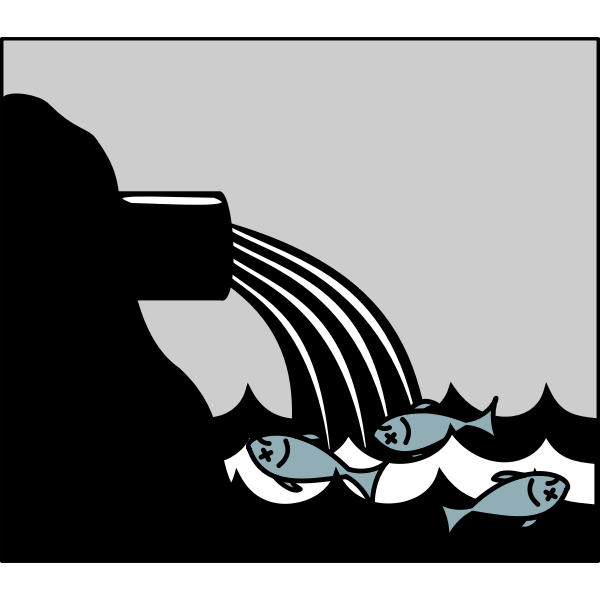Plus: the Telegraph’s ‘Clean Rivers Campaign’
.
SWW has been doing a bit of PR, promising ‘investment’ for Sidmouth and that “investigations into storm overflows that spilled hundreds of hours of sewage in 2020 are ‘scheduled or on track’”:
This comes as the Telegraph’s Clean Rivers Campaign looks at the statistics:
Water companies are ‘releasing raw sewage into rivers more than 1,000 times a day’ (paywall)
Here is further analysis:
The Daily Telegraph has analysed data from the Environment Agency (EA) which it says shows that throughout 2020, raw sewage was discharged into rivers and coastal areas for more than 3.1 million hours, on more than 400,000 occasions.. However, the quality of the data available to monitor sewage spills has been the topic of controversy recently. Last month, the water sector was accused of regularly failing to report raw sewage spills and playing down the severity of those it does own up to, according to data from campaigners and testimonies from EA whistleblowers.
The Telegraph’s analysis comes as it launched a ‘Clean Rivers Campaign’, which follows weeks of reports about how the EA has decided to ignore lower impact pollution incidents and how cuts to frontline resources means that officers are no longer able to do their jobs…
Raw sewage discharges ‘occurring 1,000 times a day’, says newspaper analysis
This was followed up by reports from Ofwat – again, from the Telegraph:
Water company bosses should have pay linked to pollution, head of Ofwat says (paywall)
With more here:
Water company chief executives should have their pay linked to levels of pollution, the head of the industry regulator has told the Telegraph. “Excess” returns must be reined in and action taken to clean up sewage in rivers, David Black, Ofwat’s interim chief executive, said. Ofwat is considering changes which could require companies to link their performance to payouts or risk fines by the regulator.
Water company bosses should have pay linked to pollution, head of Ofwat says
The campaigner Feargal Sharkey, picks up on a similar piece this week from the FT:
Feargal Sharkey on Twitter: “”Britain’s privatised water companies should link executive pay to performance on a range of measures including sewage pollution, according to the industry regulator Ofwat.” Clearly @AnglianWater didn’t get that memo. https://t.co/mHSmiV3G7p” / Twitter
And last week, the FT focussed on SWW itself:
South West Water: spending cuts and dismal pollution record | ft.com (pay wall)

Here’s the first part of the article:
The white sand beaches of Devon and Cornwall are some of the most popular tourist destinations in Britain. Unfortunately, their coastal waters and rivers are also among the most polluted.
Last month the Environment Agency hit South West Water with the lowest environmental rating of the nine large privatised sewage and water companies in England and Wales. The regulator singled out the regional monopoly for poor performance, saying in 2020 it had been “consistently unacceptable” for the 10th year in a row.
South West Water’s dismal record on pollution is one of a number of dubious distinctions for its owner Pennon Group, which include charging the most expensive water bills in the UK, performing poorly on leakage and ramping up debt levels to one of the highest per household. Almost all the water companies in England and Wales have slashed capital spending since they were privatised 31 years ago. But Pennon, one of three stock market listed providers of water and sewage services in the UK, with a market value of £2.8bn, has wielded the axe most vigorously. After a brief surge in investment in the first few years after privatisation, South West Water, which provides services to Devon, Cornwall and small parts of Dorset and Somerset, has almost halved real-terms capital investment in infrastructure.
South West Water: spending cuts and dismal pollution record in tourist hotspot : FT_comments (via Reddit)
South West Water: spending cuts and dismal pollution record in tourist hotspot- Vigour Times
Here is further comment from the head of Surfers Against Sewage:
Hugo Tagholm on Twitter: “South West Water: spending cuts and dismal pollution record in tourist hotspot https://t.co/mc1XPIGdAJ @sascampaigns @amyslack84 @Feargal_Sharkey @CarveMag” / Twitter
Finally, here’s an excellent summary for A-level students:
This is a fairly damning report in the FT on the privatised UK water industry in general and South West Water in particular.
Almost all the water companies in England and Wales have cut their capital spending in real terms since they were privatised 31 years ago. Total capital investment across England’s water and sewage companies has fallen by 16 per cent, and wastewater capital investment by 19 per cent in real terms since privatisation. Yet dividends paid to shareholders have grown. Increasingly frequent spillages of raw sewage into rivers that flow onto coastal waters are obvious examples of negative externalities from production that create significant social costs.
According to the FT article, ” Surfers frequently become sick from exposure to sewage effluent, he said, while a study by Exeter university found that they were three times more likely to have antibiotic resistant e-coli in their gut than other people.”
Should the UK water industry be fully nationalised? This short revision video looks at some of the possible micro and macro effects of a transfer of ownership. Synoptic questions require you too apply your knowledge and understanding to make connections across both micro and macro themes of the specification.
Nationalisation: UK Water Industry I A Level and IB Economics – YouTube
tutor2u | Water Industry and Externalities – SW Water criticised for…